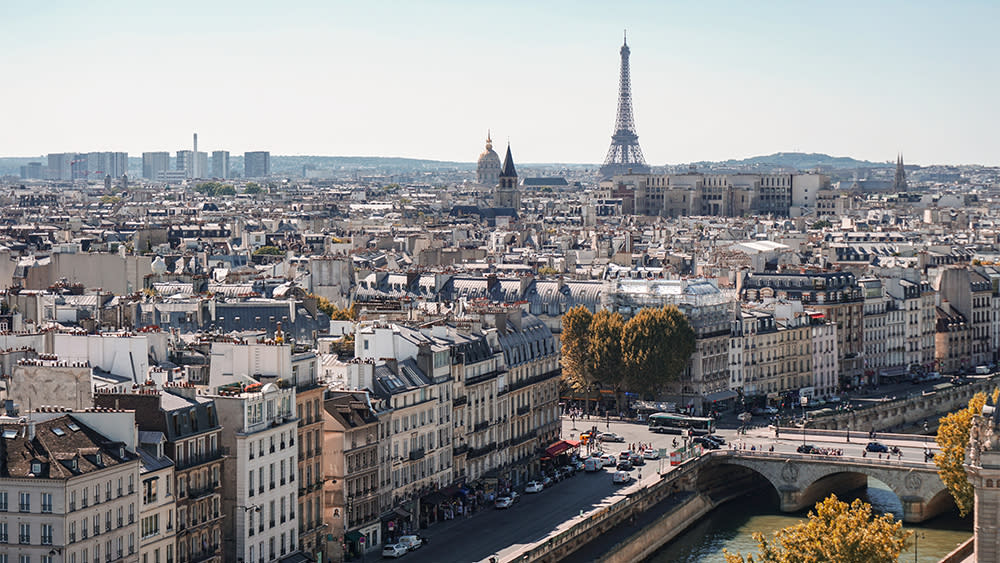City of Light Curfews? France Will Now Fine Stores for Leaving Their Lights on Too Long

The City of Lights may shine a little dimmer soon—or it will have to pay the price. That’s because France is struggling to keep up with its energy bills.
Last year, the European country unveiled plans to cut heating and power use in public and private sectors after Russia tightened on gas deliveries to Europe, causing French nuclear reactors to suffer prolonged outages. France’s combined consumption of power and natural gas has since dropped by nearly 12 percent from pre-crisis levels, which surpasses a target of 10 percent cut by 2024, Bloomberg reports. Still, elevated power bills continue to beleaguer the country and challenge its efforts to help stunt climate change.
More from Robb Report
Welcome to The Oeno Files, Robb Report's New Weekly Wine Newsletter
Leonardo da Vinci Used a Rare Chemical Compound When He Painted the 'Mona Lisa,' Scientists Say
A Renovated 18th-Century Apartment in Paris Just Listed for $47.4 Million
A law that regulates lighting hours for shop windows and commercial real estate will become stricter to help combat the problem, with offenders facing fines of €1,500 ($1,579). The French government will also be introducing new tax breaks for businesses that help employees bike to work. Agnès Pannier-Runacher, minister of energy transition, spoke with L’Alsace on the matter, stating that oil use must decrease as well, after dropping less than two percent in the past year. “My goal is that this drop becomes structural,” she says. “Sobriety must become a habit.”
The government plans to offer aid to those adhering to France’s energy conservation laws. The administration will reportedly provide subsidies, covering as much as 80 percent of the price of “smart” digital thermostat for homes, which can cost up to €1,000 ($1,062). Six energy suppliers, including state-owned Electricite de France SA, are expected to offer contracts that reward households successfully curbing energy use as well. Talk about a Catch-22.
The country’s attempts to curb energy consumption made headlines in Paris last fall when it was revealed that the iconic Eiffel Tower would cut the lights an hour earlier than usual (at 10 p.m.) to conserve energy throughout the winter. The capital’s energy bill was expected to hit 90 million euros in 2022, according to Reuters, which was 35 million more than average.
Sign up for Robb Report's Newsletter. For the latest news, follow us on Facebook, Twitter, and Instagram.


